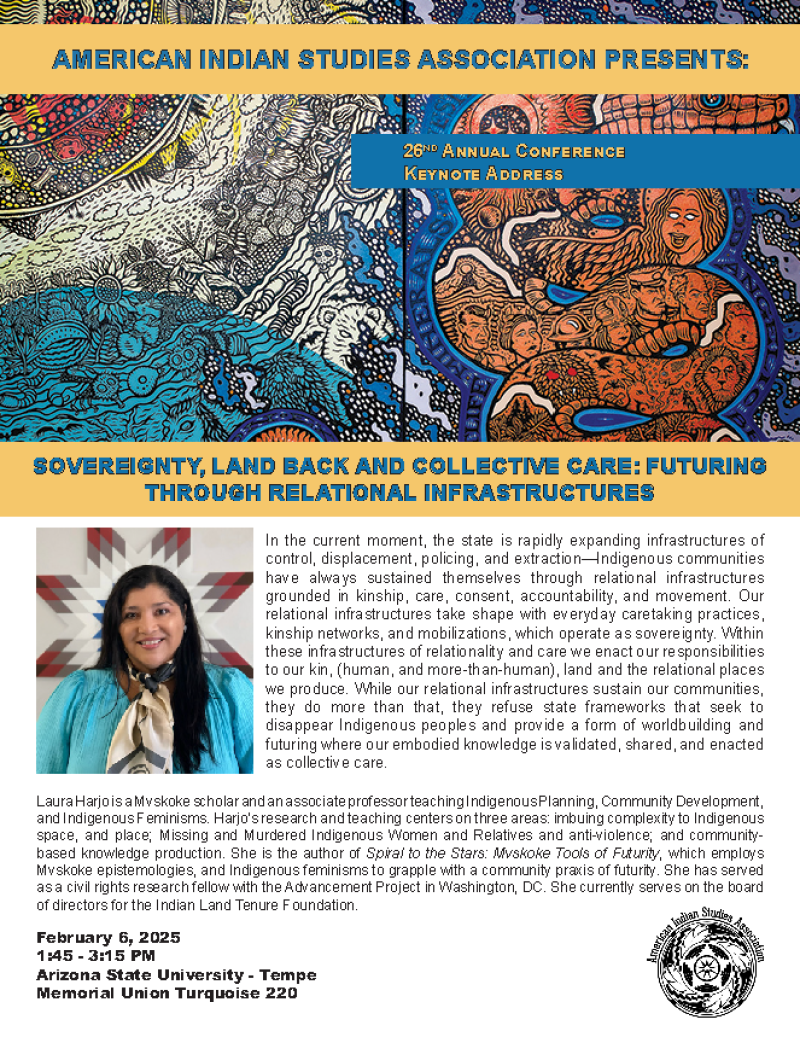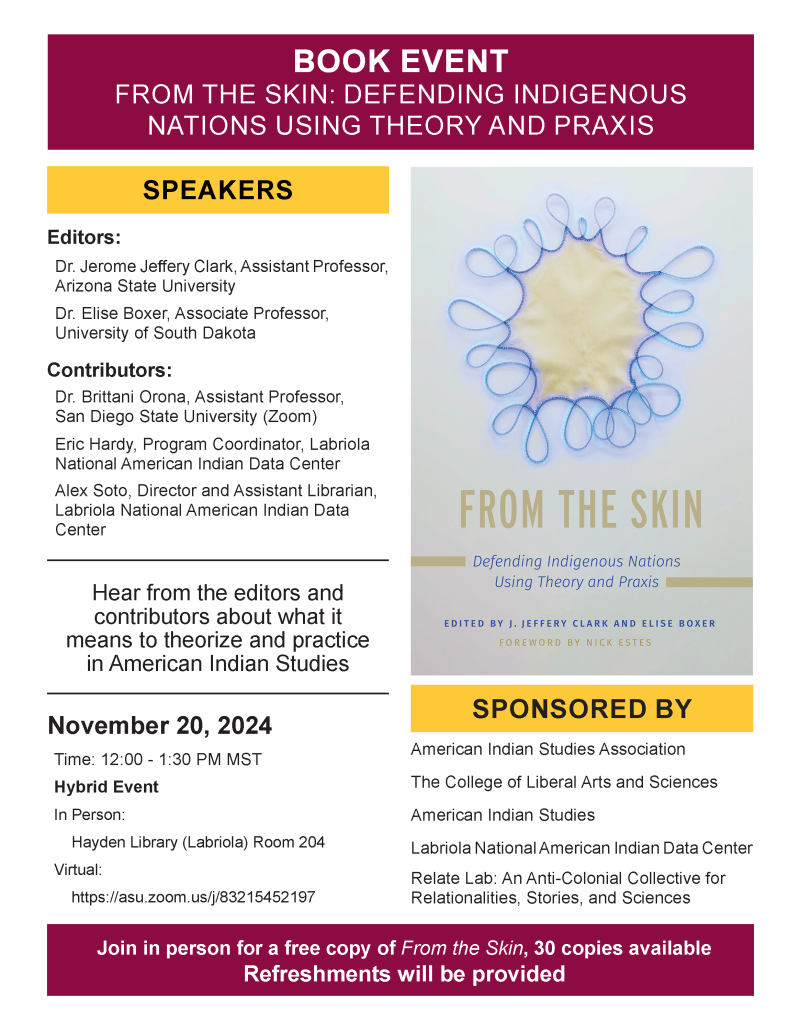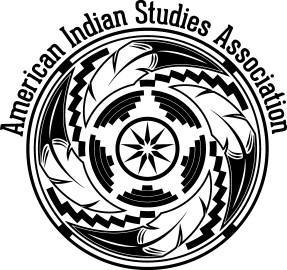2025 American Indian Studies Association
26th Annual Conference - Agenda
February 6-7, 2025
3rd Annual Graduate Student Pre-Conference
February 5, 2025
Arizona State University, Memorial Union Building
Tempe, Arizona
Hotels/Travel Information for ASU Campus Visitors
Imagining Sovereign Indigenous Futures:
Drawing Wisdom from the Past for a Self-Determined Future
The American Indian Studies Association (AISA) honors the scholars and communities who established and continue to strengthen the discipline of American Indian Studies (AIS). This year’s conference celebrates generations of scholars, educators, activists, researchers, practitioners and students whose work protects and furthers Indigenous sovereignty and self-determination across spaces and spectrums. Conference panels and roundtables will engage in theories, methodologies, pedagogies and practice of the discipline.
We will celebrate all our voices as we envision sovereign futures. Sovereignty is ever-changing and not without challenge. We will highlight work on issues of land, language and linguistics, culture, identity, social and environmental justice, economics, policy and politics, treaty rights and representation in film and media. We honor scholarship rooted in Indigenous epistemologies and in collaboration with community as we seek sovereign, self-determined futures.
American Indian Studies (AIS) at Arizona State University (ASU) is proud to be the 2025 host. Arizona is home to 22 federally recognized Indigenous Nations. ASU is on the ancestral lands of the Akimel O’odham and Pee Posh Peoples and is community to more than 3,800 American Indian/Alaska Native students and dozens of Indigenous faculty.
https://inclusion.asu.edu/indigenous-success
Conference registration is now open!
Rates are as follows:
| Professors and Professionals | $250 |
| Associate Professors | $200 |
| Assistant Professors | $150 |
| Staff/Contingency Faculty | $75 |
| Graduate Students | $75 (the Pre-Conference is free, you must pay to attend the full conference) |
| Elders | No charge but we ask that you register |
| Undergraduate Students | No charge but we ask that you register |
Questions? Email Michelle L. Hale, AISA President:

* * * * * * * * *
3rd Annual AISA Graduate Student Pre-Conference
February 5, 2025
Come join graduate students and faculty mentors for a day of networking and conversation about professional development, career exploration, finding support and building community in American Indian Studies. This year’s discussion will focus on wellness and well-being.
Upcoming Events | Hosted by AISA
Book Event

From the Skin: Defending Indigenous Nations Using Theory and Praxis
Date: November 20, 2024
Time: 12:00 - 1:30 p.m. MST
